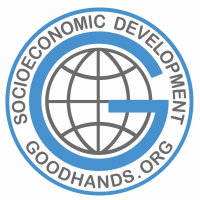Building Stronger Communities: Accessing Social Support Resources
Community and social support are vital for personal and collective growth. This section connects you with resources, programs, and information to foster social engagement, provide assistance, and strengthen community bonds. Explore ways to access support and contribute to building a more inclusive society.
Understanding Social Terms
Altruism: Selfless concern for the well-being of others, often leading to acts of kindness or charity.
Bias: A tendency to favor certain ideas, individuals, or groups, often in a way that’s unfair or unbalanced.
Civic Engagement: Active participation in activities that promote the welfare or governance of a community, like voting or volunteering.
Cultural Competence: The ability to understand, communicate with, and effectively interact with people across different cultures.
Ethics: Principles that govern behavior, determining what is morally right or wrong.
Food Insecurity: Limited access to enough nutritious food for an active, healthy life, often due to financial or systemic barriers.
Hate Speech: Language that attacks or discriminates against a person or group based on characteristics like race, religion, or gender.
Intersectionality: The overlapping and interconnected nature of social categorizations, such as race, gender, and class, and how they create discrimination or privilege.
Marginalization: The process of pushing individuals or groups to the edges of society, denying them access to resources or opportunities.
Microaggressions: Subtle, often unintentional, actions or remarks that perpetuate stereotypes or discrimination.
Public Policy: A system of laws, regulations, and actions adopted by governments to address societal issues.
Recidivism: The tendency of a person who has been incarcerated to reoffend and return to prison.
Shelter Services: Temporary housing and support provided to individuals or families experiencing homelessness or crisis.
Social Capital: The networks and relationships among people that enable communities to function effectively.
Universal Basic Income: A policy concept that proposes providing all citizens with a regular, unconditional sum of money to cover basic needs.

